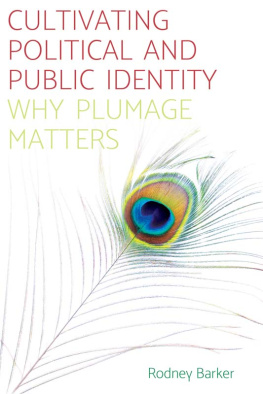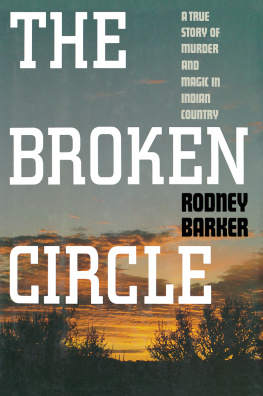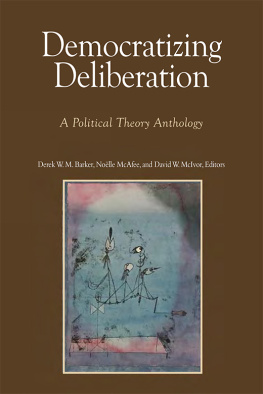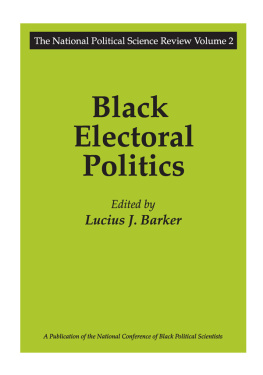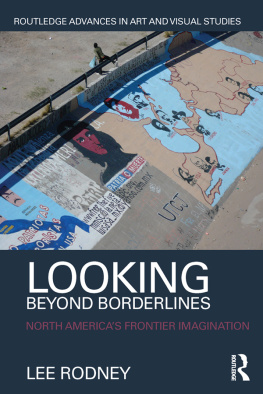Copyright Rodney Barker 2017
The right of Rodney Barker to be identified as the author of this work has been asserted by him in accordance with the Copyright, Designs and Patents Act 1988.
Published by Manchester University Press
Altrincham Street, Manchester M1 7JA
www.manchesteruniversitypress.co.uk
British Library Cataloguing-in-Publication Data
A catalogue record for this book is available from the British Library
ISBN978 1 5261 1458 7hardback
ISBN978 1 5261 1459 4paperback
ISBN978 1 5261 1460 0open access
First published 2017
An electronic version of this book is also available under a Creative Commons (CC-BY) licence.
The publisher has no responsibility for the persistence or accuracy of URLs for any external or third-party internet websites referred to in this book, and does not guarantee that any content on such websites is, or will remain, accurate or appropriate.
Typeset
by Toppan Best-set Premedia Limited
A detective story works when the conclusion is a surprise. If the butler (or frequently, these days, the home secretary or MI5) did it, that has to be hidden until the end, however many clues were scattered on the way. Non-fiction is under the opposite obligation. Readers want to know where the narrative is going. If capitalism is to blame, or is the solution to everything, that must be announced from the start. In practice the genres can be muddled. Accounts of human life can be presented as if they were a surprise which the evidence has revealed only as the story advances. But any account has to begin with some understanding about what is going on. So I will describe the assumptions that are illustrated, rather than proved or discovered, in the following chapters.
Identity cultivation, composed of both choice and circumstance, has been discussed in many ways, from theology's balancing of free will and predestination, through Marx's creativity within circumstance, to discussions such as Bourdieu's taxonomy of taste. The following chapters are not a presentation of a theory of social life, but an examination of what kinds of things can be said by starting with identity.
until the end, or skip it entirely. The book has five principle themes, which are no more than abbreviations of well-established ideas not only in the social sciences and humanities, but in theology and political theory and, quite possibly, art and artistic theory.
First, the identity paradox the continual tension between identity as association with some broader group, ideology, or vision, and identity as distinctiveness by contrast within such groups, ideologies, and visions is a continual tangle between the aspiration towards equality and the assertion of inequality.
A commentator or describer of identities is therefore obliged to be a democratic empiricist, to begin by taking account of all aspects of behaviour, and may not dismiss anything as of no significance. Parsimonious accounts are parsimonious, and have the same disadvantage as parsimonious meals, plays, music, or literature. The metaphor of a mask is misleading too it separates the person from the public, evident identity in a way which suggests that one is in some sense more real than the other, and that what is seen and heard is artificial, a pretence by a real person.
Third, the cultivation of identity in public and political life is conducted by people within contexts which provide them with both opportunities and constraints, and which, prior to their making choices, cultivate in them preferences, conceptions, and perceptions. The cultivation of identity is therefore a continual negotiation, and neither simply determined nor simply free. The constraints and the opportunities which form the context of choice are themselves the product of earlier actions. In the cultivation of identity as an interplay between choice and circumstance, circumstance may be the result of the actions or intentions of other people, and choice may be a choice to influence or control not only one's own identity but that of others.
Fourth, identity and interests are not alternative ways of describing individuals or groups, but are concepts describing different aspects of social life, so that the phenomena to which they refer stand in a symbiotic rather than a causal relation to one another, each presupposes the other, and an account in terms of one is not a denial of the reality of the other.
Fifth, general theories of causality can be monochrome or one-dimensional, and can never fully account for actual events and circumstances. By their very universality they exclude much that a fuller but more bifurcated account could give, but are nonetheless necessary components of accounts and explanations in conjunction with other descriptions of human social behaviour. Social life is composed of many purposes, contexts, constraints, and opportunities so that causes, effects, patterns, and relationships attributed to humanity as a whole will always refer to ideal and imagined events and circumstance, never to actual ones. General theories or narratives provide the necessary ingredients for complex or qualified accounts of real circumstances, not a sufficient or full account of what is going on. It follows that the apparently general accounts I give can themselves only ever serve as ingredients for narratives of geographically or temporally specific events, conditions, or patterns.
Each of these issues has been dealt with great skill and subtlety and at higher and higher levels of abstraction and universality by writers across the social sciences and humanities; an enterprise which I have not attempted to join. I have not tried to operate on a philosophical high wire whilst juggling a handful of conceptual plates. If this makes my working assumptions more arbitrary it will nonetheless, I hope, make them simpler and more immediately accessible.
They draw on, and I hope engage with, accounts, explanations, and theories of several kinds, but as a scavenger rather than as a member of any particular academic community.
There is a footnote to this introduction. Pierre Bourdieu has argued that the most apparently trivial aspects of behaviour and taste and the most apparently grand, or sophisticated, are all parts of a coherent whole. Something similar might be said of accounts of identity, and of the range of accounts, descriptions, and histories in the humanities and social sciences. The theories of academics and the comments and recommendations of reformers, politicians, and ordinary citizens often seem surprisingly similar in substance while not in style, in dealing with such issues as the relation between the built environment and the character and quality of life, or the role of clothing in stating and constituting the status, or skill, or valued qualities of the wearer. Just as in music and architecture there is an unbroken though not even scale from the vernacular to the professionalised and back again, so can there too be in accounts of human identity. The academic work of seeing architecture and the arrangement and creation of public space as both aspects of the identity of regimes, communities, or classes, and means of cultivating those identities, can draw on and be sustained by the stated intentions of those who created these built environments, but whose concern was the expected impact, not the view of human identity which informed it. The institutional boundaries which seem to separate novelists from social scientists, dramatists from demographers, or poets from political scientists, are less easily insisted on in the productions of these different communities. Academic accounts raise the stated aspirations, expectations, and descriptions from particular locations and transmute them into broader, general accounts, which in their turn can inform the more particular. This book is no exception to that wide community of argument, explanation, and action which provides an unbroken though sometimes bumpy continuity from the vernacular to the academic. Plays, poetry, cinema, novels, cartoons, or theatre are not auxiliary illustrations for scientific work, but contributions in their own right to description and explanation. What follows cannot claim to be any more than a swift synthesis of some of this work, and its own contribution is by way of co-ordination and presentation, not discovery.

